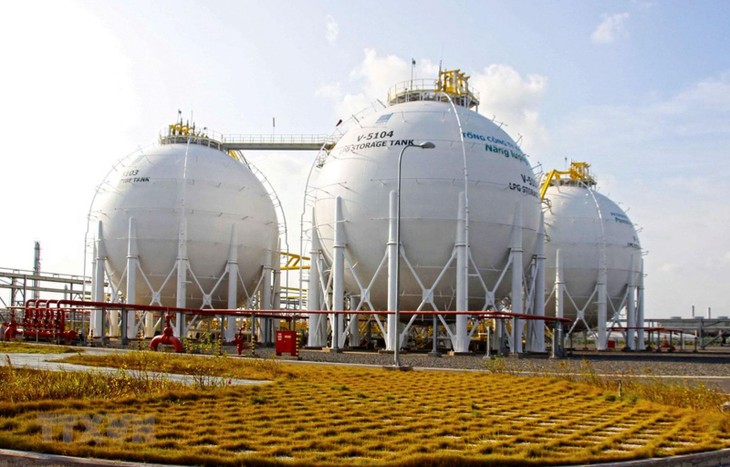(VOVWORLD) - Vietnam set a goal to be carbon neutral by 2050 at the 26th Conference of the Parties to the United Nations Framework Convention on Climate Change (COP26). Vietnam has adopted several policies to develop clean energy sources and renewable energy to reduce carbon emissions.
 (illustrative photo: moit.gov.vn) (illustrative photo: moit.gov.vn) |
By the end of last year, Vietnam's total power system topped in Southeast Asia with the total installed power capacity of more than 76,000 MW. Power supply has met the demand and contributed to economic development. The proportion of clean energy sources, including hydropower and other renewable power sources, reached 65.6% of the system’s total installed capacity.
Under the draft National Power Development Plan for the 2021-2030 period, a vision to 2045, it is expected that by 2030 Vietnam’s total wind power capacity will be 16,100 MW, solar power 16,500 MW, with the possibility of an additional2,400 MW of investment projects. The development of wind, solar, and gas power in Vietnam is an inevitable trend for the future.
Hoang Xuan Quoc, Director of Long An Liquefied Petroleum Gas (LNG) Power Project said that LNG is a mandatory path before switching from thermal power plants to zero carbon. “The important issue of LNG is the market. Investment in LNG in the long term and LNG pricing should be calculated by fuel prices. Electricity consumption at LNG plants must ensure to cover the investment cost of billions of dollars otherwise it will be difficult to deploy LNG plants.”
Some investors proposed the allowance of private investment in LNG plants, so the authorities should plan for electricity purchase and sale. When enterprises have power purchase and sale contracts, they will actively arrange capital.
Pham Nguyen Hung, Deputy Director of the Department of Electricity and Renewable Energy of the Ministry of Industry and Trade, said that these problems would be solved in upcoming electricity price regulations.
“The inclusion of gas prices in electricity prices and electricity prices in model contracts are being considered for a circular price framework and price determination method,” said Hung.
Developing clean and renewable energy is a sustainable economic development trend and implementing Vietnam's commitment at COP26 to reduce carbon emissions.